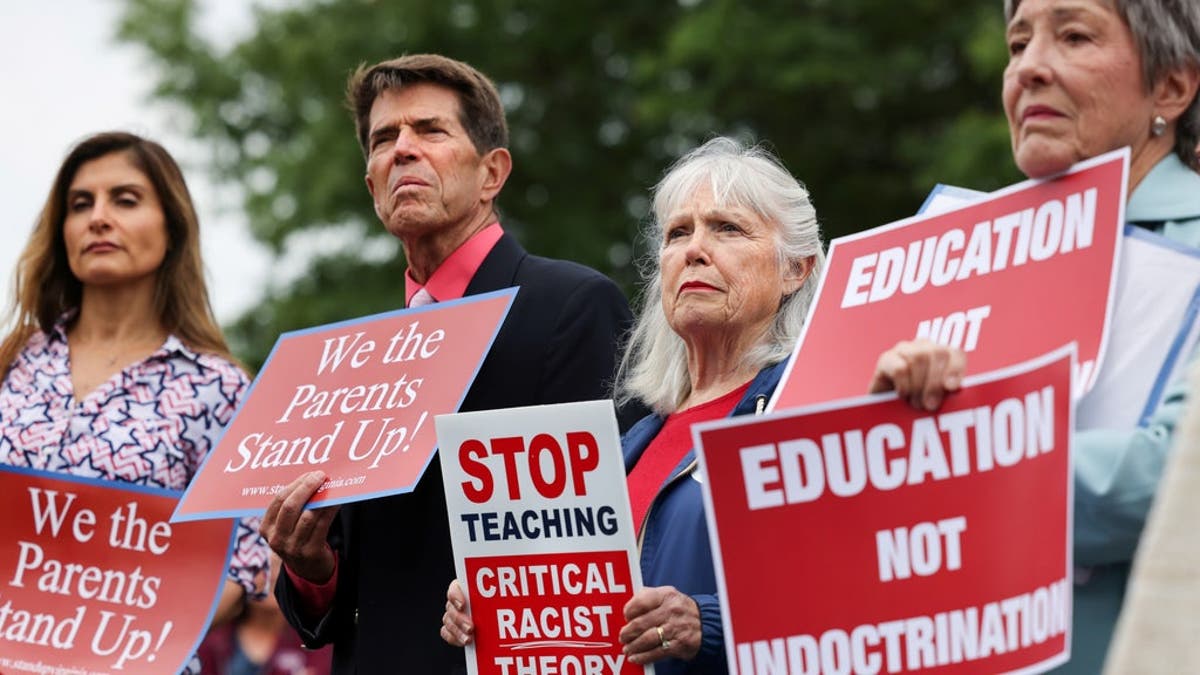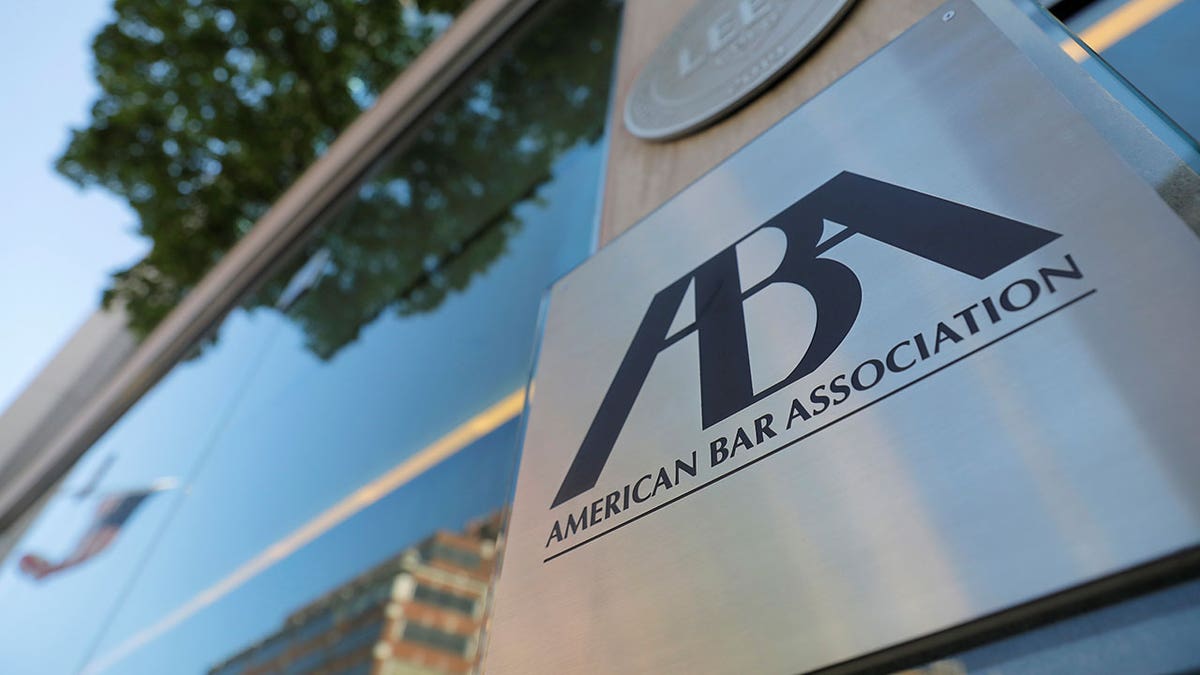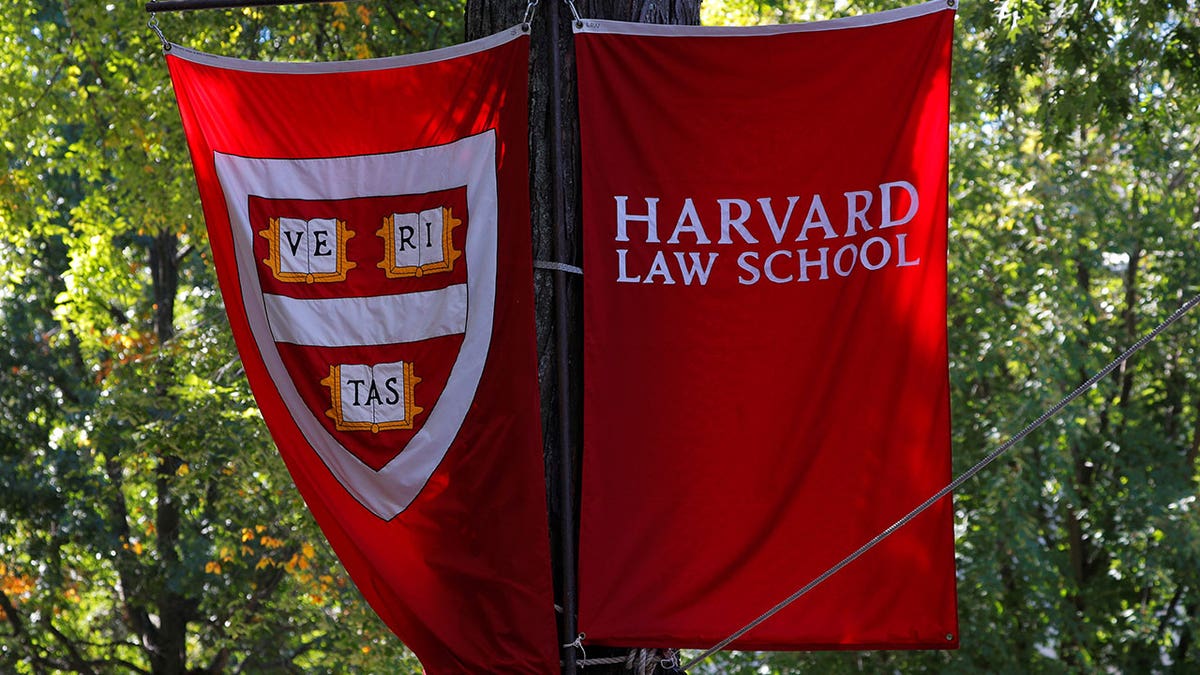Kristen Waggoner on Yale Law students disrupting event: It shouldn’t take place at a law school
Kristen Waggoner, general counsel at Alliance Defending Freedom, reacted to a new video of Yale Law students disrupting an event about the importance of free speech.
A prominent liberal legal scholar at Northwestern University told Washington Free Beacon reporter Aaron Sibarium in a piece published Monday that America's legal system was at risk of becoming a "totalitarian nightmare."
"People will ask: ‘How can you represent someone who’s guilty?’ The answer is that a society where accused people don’t get a defense as a matter of course is a society you don’t want to live in. It’s a totalitarian nightmare," Andrew Koppelman, told Sibarium,. Sibarium's piece, headlined "The Takeover of America's Legal System," was published in Bari Weiss' "Common Sense" substack and outlined a shift in how law schools prepare their students for the legal system.
The analysis opens by noting a question posed to David Boies, who represented Harvey Weinstein, by an associate of his law firm. She asked if he would provide severance "so they could quit and focus on applying for jobs at other firms." Boies said no, and according to Sibarium, this kind of pushback from other lawyers was not something America's legal community was used to.
"Defending communists, terrorists, and cop killers had never been a crowd pleaser, but that’s what lawyers had to do sometimes: Defend people who were hated," Sibarium wrote.
Sibarium contended that polarization on and "tribalism of campus life" has turned students against traditional aspects of justice and law.
FEDERAL JUDGE SAYS YALE LAW STUDENTS WHO DISRUPTED FREE SPEECH PANEL SHOULD BE ‘NOTED’: EMAIL
"The imperatives of race, gender and identity are more important to more and more law students than due process, the presumption of innocence, and all the norms and values at the foundation of what we think of as the rule of law," he wrote, adding that critics of the foundation of the rule of law were not new. In 2020, critical race theory became more mainstream and started to become more prominent in the curricula of colleges and law schools.

Opponents of the academic doctrine known as Critical Race Theory protest outside of the Loudoun County School Board headquarters, in Ashburn, Virginia, June 22, 2021. REUTERS/Evelyn Hockstein (REUTERS/Evelyn Hockstein)
Sibarium also noted the impact of administrators on faculty and students. Yale employs "5,066 administrators and just 4,937 professors," according to his analysis.
"Several law professors bemoaned the proliferation of diversity, equity, and inclusion offices, which, they said, tend to validate student grievances and encourage censorship," he wrote.
Georgetown Law School, UC Irvine School of Law, University of Southern California Gould School of Law, Yeshiva University’s Cardozo School of Law, and Boston College Law have all started to require classes that challenge law neutrality, according to Sibarium. The American Bar Association requires accredited law schools to "provide education to law students on bias, cross-cultural competency, and racism."

Signage is seen outside of the American Bar Association (ABA) in Washington, D.C., U.S., May 10, 2021. REUTERS/Andrew Kelly (REUTERS/Andrew Kelly)
A tenured criminal professor, who told Sibarium that she identifies as liberal, said she doesn't teach theories of punishment or about retributivism because of how students reacted to it in the past.
"I got into this job because I liked to play devil’s advocate," she said. "I can’t do that anymore. I have a family." Nadine Strossen, a professor at New York Law School told the reporter she "massively" censors herself.
"I assume that every single thing that is said, every facial gesture, is going to be recorded and potentially disseminated to the entire world. I feel as if I am operating in a panopticon," she told Sibarium.
A professor at Harvard Law told the reporter that students face "social death" if they openly dissent from what is now considered the norm. Yale Law professor Kate Stith, who recently told a group of protesters disrupting a bipartisan, free speech panel to "grow up," added that law schools "are in crisis."

Banners for Harvard Law School fly during the inauguration of Lawrence Bacow as the 29th President of Harvard University in Cambridge, Massachusetts, U.S., October 5, 2018. REUTERS/Brian Snyder (REUTERS/Brian Snyder)
"The truth doesn’t matter much. The game is to signal one’s virtue," she said.
The New York Times editorial board published a piece Friday that argued America is losing "the right to speak their minds and voice their opinions in public without fear of being shamed or shunned." The authors argued it was because both political parties are caught up in a "destructive loop of condemnation and recrimination around cancel culture."
The editors also noted a poll the paper commissioned with Siena College. Just 34% of respondents said they think all Americans can speak completely freely.
The editorial board also wrote that free speech was the "bedrock of democratic self-government," and that it requires discourse with those that disagree.
CLICK HERE TO GET THE FOX NEWS APP
A group of over 100 law students at Yale University recently protested and disrupted a bipartisan panel on civil liberties, which included panelists from both sides of the political aisle.
The school's Federalist Society said the event was meant to demonstrate that both a Christian conservative and an atheist liberal could find common ground on issues of free speech. The panelists, Kristen Waggoner, of the Alliance Defending Freedom (ADF) and Monica Miller, of the American Humanist Association, were both escorted from the event by police.
"My hot take: Good lawyers win with civility & persuasion, not physical intimidation and threats of violence. We aren’t afraid to engage with people and ideas we disagree with. Apparently many of the students missed this lesson," Waggoner said on Twitter after the event.
Conservatives have long regretted the trend toward "wokeness" on America's college campuses. Sixty-two percent of college students say campus climate impacts student speech and sometimes prevents them from speaking their mind, according to a Heterodox Academy 2020 Campus Expression Survey. But some students, like Alma College junior and Indian immigrant Aryaan Misra, have begun to speak up.
"Here, I’ve been labeled a Republican, a conservative, right-wing, transphobic, but I’m none of that," Misra said on "Fox & Friends Weekend" in January. "I’m just simply standing up for free speech and just want an environment on the campus where people can talk about everything and get to the truth."










































